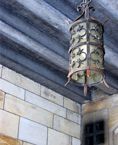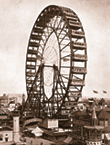International Studies
Catalog Home › Archives › The College 2011-2012 Catalog › The College › Programs of Study › International Studies
This is an archived copy of the 2011-12 catalog. To access the most recent version of the catalog, please visit http://catalog.uchicago.edu.
Contacts | Program of Study | Program Requirements | Summary of Requirements | Honors | Grading | Courses in International Studies Subfields | Courses
Contacts
Undergraduate Primary Contact
Administrative Contact
Secondary Contacts
Preceptors/BA Advisors
Program Adviser
P 116
834.1184
|
Program Preceptors
G-B 218B
702.7920
|
|
|
Website
http://inst.uchicago.edu
Back To Top
Program of Study
The undergraduate program in International Studies (IS) draws on the strengths of the College faculty in a variety of disciplines and their innovative work in a number of areas of international relevance (e.g., human rights, international relations, globalization, transnationalism, area studies). It is designed to attract students who are preparing for academic, government, nonprofit, or business careers with an international focus, and who value the benefits of study abroad and of cross-cultural learning.
The program is organized around courses drawn from two thematic tracks and area studies:
- international political economy (thematic)
- transnational processes (thematic)
- area and civilization studies
Students should plan to complete their program within four years of study.
Study abroad experience is a requirement of the IS program. Students who are interested in pursuing the program should begin exploring appropriate plans early in their second year.
Back To Top
Program Requirements
Students must take the required thirteen courses according to the following five guidelines:
IS Introductory Sequence
Students are required to take a two-quarter introductory sequence, taught annually, in the field of international studies. One quarter provides an overview of contemporary global issues (INST 23101 Contemporary Global Issues I); the other provides in-depth studies of selected issues (INST 23102 Contemporary Global Issues II). These courses are designed to be taken in sequence. Students are strongly encouraged to complete the sequence in their second year unless they plan to meet their general education requirement in civilization studies by participating in one of the College's study abroad programs during Autumn or Winter Quarter.
International Political Economy Thematic Track
(2 or 4 courses)
Nation-states and national sovereignty, relations between nation-states, political identity, development, conflict and security, and relations between states and international political (e.g., United Nations) and economic (World Bank, International Monetary Fund) organizations.
Transnational Processes Thematic Track
(2 or 4 courses)
Courses appropriate for this track take up issues and processes that operate across the borders of nations. These include economic, political and cultural globalization, transnational and multinational corporations and new patterns of consumption, nongovernmental organizations, human rights, environment and ecology, media and the arts.
Area and Civilization Track
(3 courses)
Either three courses in one area of the world (but no more than two from the same country); or two courses in one area and one course in another area. Students majoring in IS may count one civilization studies course that bears a University of Chicago course number that is not used to meet the general education requirement in civilization studies; or with the approval of the director, they may count two courses taken while participating in one of the study abroad programs that feature civilization studies that is not used to meet the general education requirement in civilization studies.
Literature courses taken at the level of third-year language or above may count toward the area and civilization track. To be considered at the level of third-year language or above, a course must be at least the seventh quarter of a language sequence.
Course Distribution
Students are required to complete a total of thirteen courses in the following combination: two courses in the introductory core; six courses in the two thematic subfields (two in one and four in the other); three courses in area and civilization studies, two of which must be in the same region of the world; and the two course BA seminar taught only in sequence in the autumn and winter quarters.
Students select their courses in consultation with IS program advisers. The IS faculty selects classes each year that are accepted toward the major, and the list is updated quarterly at inst.uchicago.edu/courses.shtml
.
Foreign Language
Students can meet the program's foreign language requirement in one of two ways:
- Students may complete the equivalent of seven quarters of language study in a single language. Credit for the seventh and final quarter must be earned by Chicago course registration. For information about the use of language as elective courses in the major, see the Course Distribution section above.
- Students may obtain an Advanced Language Proficiency Certificate, which is documentation of advanced functional ability in reading, writing, listening, and speaking. To qualify to sit for the three-hour proficiency examination, students are required to complete a minimum of intermediate and advanced language study at levels set by the departments and spend a quarter abroad in a College-approved intensive language program. For details, visit www.college.uchicago.edu/academics/language_advanced.shtml.
Study Abroad
Students are required to either (1) complete a minimum of eight weeks of academic study in an approved study abroad program or (2) complete an approved internship or BA research project abroad. Students are strongly encouraged to integrate their study abroad into their BA thesis projects. The best ways of doing so are, in order of significance: independent research abroad, the Chicago International Studies Winter Quarter in Paris, or a study abroad program that offers a practicum or internship. While useful for fulfilling the program requirement, the Civilization Abroad programs seldom allow time for independent fieldwork, research, or study. Participation in any study abroad program that is approved by the University of Chicago will fulfill this requirement; for more information, consult with the study abroad advisers or visit study-abroad.uchicago.edu
. (The study abroad requirement will be waived only by petition for students who are able to demonstrate a similarly significant, structured international education experience.) Students wishing to undertake a program outside the University's offerings must obtain approval of the program director before departure. Students may not participate in a study abroad program in Winter Quarter of their senior year.
Third Year
All students who are intending to major in International Studies should schedule a meeting with the program advisers during Autumn Quarter of their third year. During Spring Quarter of their third year, prospective IS majors should watch for announcement of a required meeting with the program chair. The purpose of this meeting is to provide information about the BA thesis and introduce students to the requirements and specific deadlines pertaining to the thesis. By the end of eighth week, students must have submitted a topic proposal, have secured a faculty reader, and have received written approval from the faculty reader and the preceptor for the BA paper proposal. A copy of the approved proposal must be filed in the departmental office (P 118) or students will not be eligible to register for the BA seminar. Students who are not in residence Spring Quarter of their third year should correspond with the program advisers about their plans for the BA paper before the end of Spring Quarter.
Fourth Year
Students are required to complete a BA thesis. In consultation with IS preceptors, students prepare a topic page that is due eighth week of Spring Quarter in their third year. At this time, students are also required to secure a faculty reader.
In their fourth year, students register for the autumn and winter BA Thesis Seminars (INST 29800-29801). The seminars are designed to teach research skills and more generally to aid the research and writing process. Both INST 29800 BA Thesis (Autumn Seminar) and INST 29801 BA Thesis (Winter Seminar) count toward the thirteen courses required for the major. The final version of the BA thesis is due by the second Friday of the quarter in which the student plans to graduate. Successful completion of the thesis requires a passing grade from the faculty reader.
The program may accept a BA paper or project used to satisfy the same requirement in another major if certain conditions are met and with the consent of the other program chair. Approval from both programs is required. Students should consult with the chairs by the earliest BA proposal deadline (or by the end of their third year, if neither program publishes a deadline). A consent form, to be signed by the chairs, is available from the College adviser. It must be completed and returned to the College adviser by the end of Autumn Quarter of the student's year of graduation.
Back To Top
Summary of Requirements
|
| 200 |
|
| 200 |
|
| 400 |
|
| 300 |
| INST 29800 | BA Thesis (Autumn Seminar)
| 100 |
| INST 29801 | BA Thesis (Winter Seminar)
| 100 |
| Total Units | 1300 |
Back To Top
Honors
On the basis of a recommendation from the faculty adviser, students with an overall GPA of 3.0 or higher and a GPA of 3.5 or higher in the major will be considered for honors. For award of honors, the BA thesis must be judged "high pass" by the faculty thesis adviser.
Back To Top
Grading
Students who are majoring in IS must receive quality grades in all courses meeting the requirements of the degree program.
Back To Top
Courses in International Studies Subfields
A complete list of approved courses is compiled quarterly. These courses are drawn from across the University. In addition to the approved list of courses, most core civilization studies courses, if taken beyond the general education requirement, may be counted for credit in the Area and Civilization Studies subfield. Visit inst.uchicago.edu/courses.shtml
.
Courses
INST 23101. Contemporary Global Issues I. 100 Units.
This class is a foundational overview of the global questions and puzzles of globalization in its very many dimensions. It is designed for the International Studies majors as well as others with interests in international studies and academic curiosity about the current contemporary order. It is the first part of a two-course sequence. The class proceeds thematically, stringing together many themes (environment, global health, humanitarian intervention, popular culture, governance) that usually comprise the domain of "global" affairs, events, items, organizations, trends, and phenomena. The class also unfolds theoretically and empirically, rooting theoretical propositions in some concrete historical geographic, and cultural locations. Investigation of global entails attention to local, as well as to some not so easy to locate sites: of flow, of trans- and international, of regional. Thus, a parallel inquiry of the class will be : How do we study global, how do we grasp the local, and what are the means of observing, assessing, qualifying, and quantifying all intermediate spaces and categories that make up the contemporary life? At the heart of our class exploration is existence under the global condition, and we will be wondering about human life in the light of contemporary challenges and opportunities: new technologies and diseases, global imagination and mass consumption, nation-states and emergencies that transcend borders, and enduring histories.
Terms Offered: Autumn
Note(s): It is recommended that students who are majoring in IS enroll in this required introductory course in their second year. Students must complete INST 23101 and INST 23102 prior to the year in which they graduate.h
INST 23102. Contemporary Global Issues II. 100 Units.
This course examines a select set of global issues in depth. The emphasis is on questioning dominant conceptions of the international order that privileges states by treating them as natural actors in the international arena; that privileges the Western world by treating it as the center; and that privileges the balance of power and deterrence by treating military force as the primary means of self-help in allegedly anarchical space beyond state frontiers. Topics include nationalism, transnational identities generated by migration and refugee flows, global environmental movements, human rights, cyber space, and international conflicts
Terms Offered: Winter
Note(s): It is recommended that students who are majoring in IS enroll in this required introductory course in their second year. Students must complete INST 23101 and INST 23102 prior to the year in which they graduate.
INST 27401. Magic in the Market. 100 Units.
This class explores cross-cultural interplay between magic, broadly speaking, and the market. Market in capitalism has regularly been attributed spectral, mystical, fantastic, uncanny and effervescent properties while the globalized faith in the markets has produced an array of highly efficacious enchantments. The class begins by rereading classic tests on magic in the context of ritualized exchange and then proceeds to examine some thoroughly modern and postmodern examples of the occult. Reading on the occult economies, economistic optimism of the development industry, promissory bioscientific enterprises, the spirits of financial and venture capital, and the emergent forms of new-age healing and biomedical innovation, the course will interrogate political and economic potentials of the continued relevance of magic in the domain of social practice and lived experience.
Instructor(s): L. Jasarevic Terms Offered: Winter
INST 27501. Global Capital, Local Bodies: Speculative, Spectral, and Scientific Economies. 100 Units.
The project of this class is to closely examine the relationship between global capital and local bodies, or put different, to look at the implications of economic forms for particular people's experience and collective forms of existence. The class will read divergently critical theories of capitalism and some historically-situated field materials, focusing on interplays between speculative, scientific, and spectral qualities of economic practice. We will examine some local sites of multinational capital investment, production, and circulation: from factory floors to marketplaces, from transnational scientific research to pharmaceutical marketing. In order to better grasp local bodies, the class will pay special attention to biomedical, genomic, and pharmaceutical industries that emerged as a major locus of global capital investment, as well as read for the existential, bodily, and political complaints about shared market conditions voiced around the globe. By examining comparatively some particular health disorders, incidents, and interventions, the class will ask: How are the ways of being, feeling, and thinking determined by the abstract global power of capital? How do bodies and economies intersect? How do local bodies and subjectivities negotiate temporalities, materialities, and epistemologies associated with the speculative and spectral features of global capital? Can we grasp a shared global condition, which is capitalism, from the vantage point of some embodied local lives?
Instructor(s): L. Jasarevic Terms Offered: Autumn
Equivalent Course(s): ANTH 25102
INST 29700. Reading and Research. 100 Units.
This is a reading and research course for independent study not related to BA research or BA paper preparation
Terms Offered: Autumn, Winter, Spring
Prerequisite(s): Consent of instructor and program director.
Note(s): Students are required to submit the College Reading and Research Course form. As part of this process students must specify in which of the three tracks (International Political Economy, Transnational Processes, or Area and Civilization Studies) they would like the course to count.
INST 29800. BA Thesis (Autumn Seminar) 100 Units.
This weekly seminar, taught by graduate student preceptors in consultation with faculty readers, is designed to aid students in their thesis research. Students are exposed to different conceptual frameworks and research strategies. Students must have approved topic proposals and faculty readers to participate in the seminar
Terms Offered: Autumn
Prerequisite(s): INST 23101 and consent of instructor.
Note(s): Required of students with fourth-year standing who are majoring in IS, but enrollment not permitted in quarter of graduation.
INST 29801. BA Thesis (Winter Seminar) 100 Units.
This weekly seminar, taught by graduate student preceptors in consultation with faculty readers, offers students continued BA research and writing support. Students present drafts of their work and critique the work of their peers
Terms Offered: Winter
Prerequisite(s): INST 29800 and consent of instructor.
Note(s): Required of students with fourth-year standing who are majoring in IS, but enrollment not permitted in quarter of graduation.
INST 29900. BA Thesis (Reading and Research) 100 Units.
This is a reading and research course for independent study related to BA research and BA thesis preparation
Terms Offered: Autumn, Winter, Spring
Prerequisite(s): Consent of instructor and program director.
Note(s): Students are required to submit the College Reading and Research Course form. This course cannot be used to substitute for either quarter of the BA Thesis Seminar (INST 29800, INST 29801).







